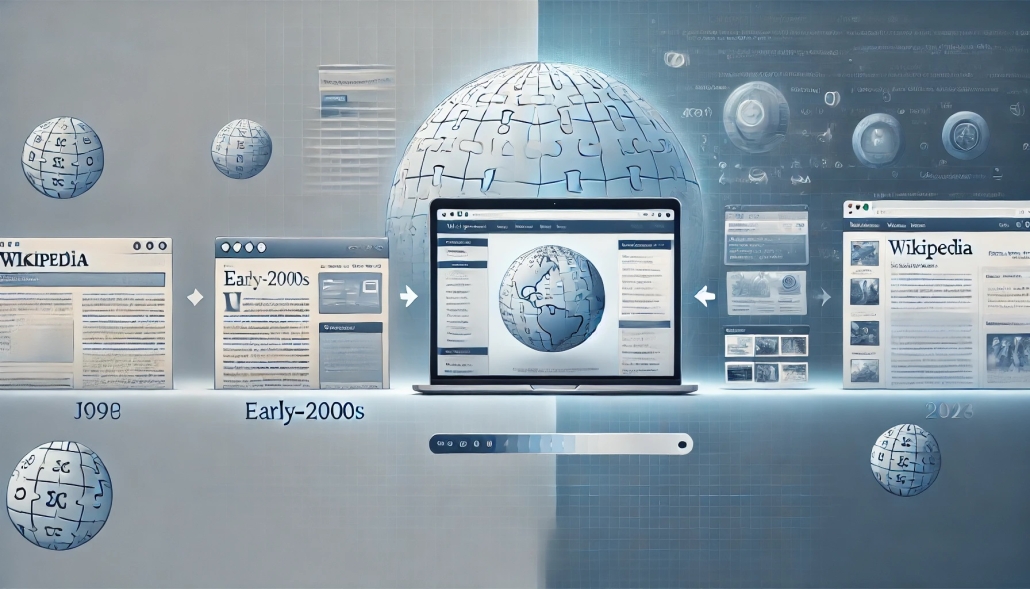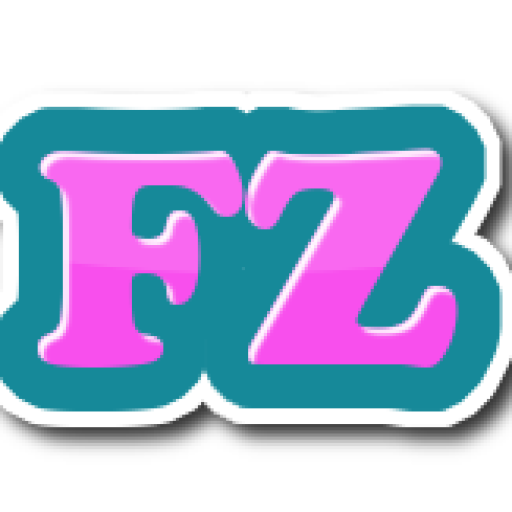Introduction Wikipedia is, without a doubt, one of the most significant developments in the digital age, fundamentally transforming how people access and contribute to knowledge. Founded in 2001, what started as an experimental platform has grown into the largest and most popular online encyclopedia, providing information to millions of users every day. Its collaborative nature and commitment to free access to knowledge have made it a cornerstone of the modern internet. This article traces the evolution of Wikipedia from its humble beginnings to its current status as a global, authoritative, and continuously evolving resource.

The Origins of Wikipedia
Wikipedia was launched on January 15, 2001, by Jimmy Wales and Larry Sanger. However, its roots go back to 2000 with a project called Nupedia. Nupedia was an online encyclopedia, but it followed a traditional editorial process, with articles written by experts and reviewed by a board of scholars. Though this model aimed to ensure high-quality content, it was slow and inefficient; only a handful of articles were published in its first year.
In an effort to speed up the process, Larry Sanger proposed the use of a “wiki,” a new type of website that allowed users to edit content collaboratively and easily. While initially met with skepticism, the idea of Wikipedia quickly gained traction. It allowed anyone with internet access to contribute to articles without needing formal credentials, democratizing knowledge production and speeding up content creation.
Early Growth and Challenges
In its first year, Wikipedia grew rapidly, with over 20,000 articles created across multiple languages. By 2002, it had outgrown Nupedia, and the decision was made to discontinue the original project in favor of Wikipedia’s faster, more open model. This early phase of Wikipedia’s development was marked by challenges, including concerns about quality control, vandalism, and the site’s credibility.
One of the key issues was ensuring the accuracy of content in an open-editing environment. Early critics doubted that a resource created by the masses could be reliable. However, Wikipedia’s founders, particularly Jimmy Wales, were committed to creating a self-correcting community, where errors could be quickly identified and corrected by other users. They implemented policies such as the “neutral point of view” and required citations for verifiability, laying the foundation for Wikipedia’s future credibility.
The Role of the Wikipedia Community
The growth of Wikipedia was fueled by a passionate and dedicated community of volunteers. These editors, or “Wikipedians,” are responsible for writing, editing, and policing the content on the site. In the early 2000s, several community-driven initiatives helped to improve Wikipedia’s quality, such as the creation of WikiProjects, which are focused groups of editors working on specific topics.
The development of various tools, such as the “history” and “talk” pages for articles, allowed for transparency and collaboration. Editors could discuss disputes, track changes, and ensure that Wikipedia adhered to its guidelines. The “administrator” role was introduced to grant trusted users additional powers, such as the ability to block vandals or protect pages from disruptive edits.
Wikipedia’s open-access nature and its community-driven content curation quickly distinguished it from traditional encyclopedias. By 2005, Wikipedia had become one of the top ten most visited websites in the world, boasting more than 500,000 articles in the English language alone.
Handling Controversies and Criticism
Despite its success, Wikipedia faced several controversies. The open-editing model, while revolutionary, made the site vulnerable to vandalism, misinformation, and edit wars, particularly on politically or socially contentious topics. One infamous case occurred in 2005 when the biography of journalist John Seigenthaler was falsely edited to include defamatory statements, which went unnoticed for months. This incident led to widespread media criticism and brought attention to the need for better editorial oversight.
In response, Wikipedia introduced stricter policies on biographies of living persons, implemented semi-protected articles to prevent anonymous editing on certain topics, and developed more advanced anti-vandalism tools. These measures helped mitigate the negative impact of misinformation, though the debate over Wikipedia’s reliability has continued over the years.
The Expansion of Wikipedia: New Languages and Projects
As Wikipedia continued to grow, so did its global reach. Although it began as an English-language platform, it quickly expanded into dozens of languages. Today, Wikipedia exists in over 300 languages, with the English version still being the largest but many other editions, such as those in German, French, and Spanish, also having significant content and user bases.
In addition to its core encyclopedia, the Wikimedia Foundation—the non-profit organization that runs Wikipedia—launched several sister projects. These include:
- Wiktionary (a dictionary)
- Wikibooks (textbooks and manuals)
- Wikimedia Commons (a media repository)
- Wikiversity (an educational resource)
These projects further contributed to the Foundation’s vision of freely accessible knowledge for all.
Wikipedia’s Impact on Education and Research
Wikipedia’s influence on education has been profound. It is one of the first places people turn to when seeking information on almost any topic. Although its open-editing model once made educators wary of using it as a formal academic source, attitudes have shifted over time. Wikipedia is now often recognized as a valuable starting point for research, particularly for gaining a general understanding of a topic and finding references to primary sources.
In recent years, many universities have embraced Wikipedia as a teaching tool. Initiatives such as the Wikipedia Education Program encourage students to contribute to Wikipedia as part of their coursework, improving the quality of articles while teaching valuable research and writing skills.
Wikipedia Today: The Largest Encyclopedia in History
As of 2024, Wikipedia is the largest and most comprehensive encyclopedia in human history. The English version alone contains over 6 million articles, and across all languages, there are more than 55 million articles. It remains one of the most visited websites globally, with billions of page views every month.
The platform continues to evolve, with ongoing efforts to improve both the quality and the inclusiveness of its content. This includes addressing systemic biases, such as the underrepresentation of women and non-Western perspectives, and ensuring that Wikipedia remains a reliable and neutral source of information.
The Future of Wikipedia
Wikipedia’s future looks bright, but it faces several challenges. These include combating misinformation in an increasingly polarized world, navigating censorship in authoritarian countries, and ensuring that its volunteer-driven model can scale to meet the growing demand for content in more languages and on more topics.
The Wikimedia Foundation remains committed to expanding access to knowledge, with initiatives aimed at improving internet access in underserved regions and providing offline versions of Wikipedia for those without reliable connectivity.
Conclusion
From its early days as an experimental offshoot of Nupedia to its current status as a global reference hub, Wikipedia’s journey has been remarkable. Its commitment to open knowledge and its collaborative nature have made it a cornerstone of the internet, fundamentally changing the way people access and share information. Though it faces ongoing challenges, Wikipedia’s role in democratizing knowledge remains unmatched, and it will likely continue to be a vital resource for generations to come. if you want to know more about Wikipedia read QNA.


